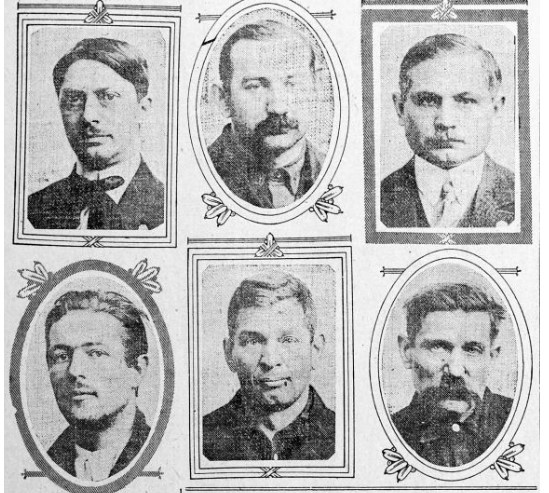This post is the third in a series on building context for the events in your ancestor’s lives. Read the first installment here. In the last post, I discussed historical events relevant to the 1918 Salt Lake Tribune newspaper article where George Neuman was required to obtain “zone privileges” to work as a butcher.
Second, article context.
To glean an even more specific context for the Zone Privileges article, I rolled up my digital sleeves and perused the newspaper the day the article was published. Online newspapers are a favorite of mine: no noisy paper folding or black inky fingers.
#GenieTip: Read articles and newspapers for the days before and after an event. Use either an article index or simply tab through the pages.
Low and behold, I found some good ‘uns.
The Zone Privileges article stated that “Three of the men whose name appear in the list have broken their promises to conduct themselves in an orderly manner while in the restricted zones.” What the first clipping did not show was this lovely mugshot line up that accompanied the full article as it was published.
But wait, there’s more!

This is a rather lengthy article, the highlights of which are:
- The seven men were “interned” in the war prison barracks at Fort Douglas.
- After a “long period of surveillance,” one man was determined to be an agent of the German government engaged in recruiting Germans for the imperial army and shipping the recruits to Mexico.
- Another man, a dynamiter, was found with a large quantity of dynamite and explosives and was known to have expressed anti-United States sentiments.
- Another two men were interned based upon the statements that they hated the United States and expressed sympathy for Germany.
- The men were to remain at the war prison barracks until the close of the war.
The Enemy Alien article also outlines the U.S. Government plan to “register every enemy alien in the country”. The U.S. Marshal for Utah estimated that there were approximately “1500 person of German nativity, about 1100 of whom are naturalized citizens of the United States, leaving about 400 unnaturalized, who are classed as enemy aliens.” The majority of the unnaturalized Germans were residents of Salt Lake, as “in order to prove up on government lands or homesteads it is necessary for all of foreign birth to become naturalized citizens.” In other words, there were not many unnaturalized Germans living in rural areas because obtaining homesteads and governmental land grants required a person to be naturalized.
The registration of Germans was carried out by the police and postmasters in each community and “the necessary registration affidavits, registration cards, and other forms” were to be retained by in the communities with one copy transmitted to the U.S. Marshal in each district, and a third set send to the Department of Justice in Washington D.C.
I realize that to most people that last bit probably doesn’t mean much. As a genealogist, I would love to get my hands on the registration affidavits.
My take away from the newspaper context is that some of the men who were interned were done so based on anti-American statements alone. There is no mention of trials or due process rights (the Geneva Convention was still years away). Within a rather small community of German-born residents, to have seven men interned as enemy aliens likely caused a stir and alarm. For George, it likely was alarming to be subjected to registration requirements and possibly surveillance. In short, it must have been a frightful and insecure existence to be a German-born resident of Salt Lake City in January 1918.
Final note: For the sake of brevity, this post covers only one day of newspaper coverage on this issue. Certainly, a more in-depth search of historical newspapers, both in Utah and elsewhere, would provide even more context.
Next Post in Series. Geography and the Phone Directory.





